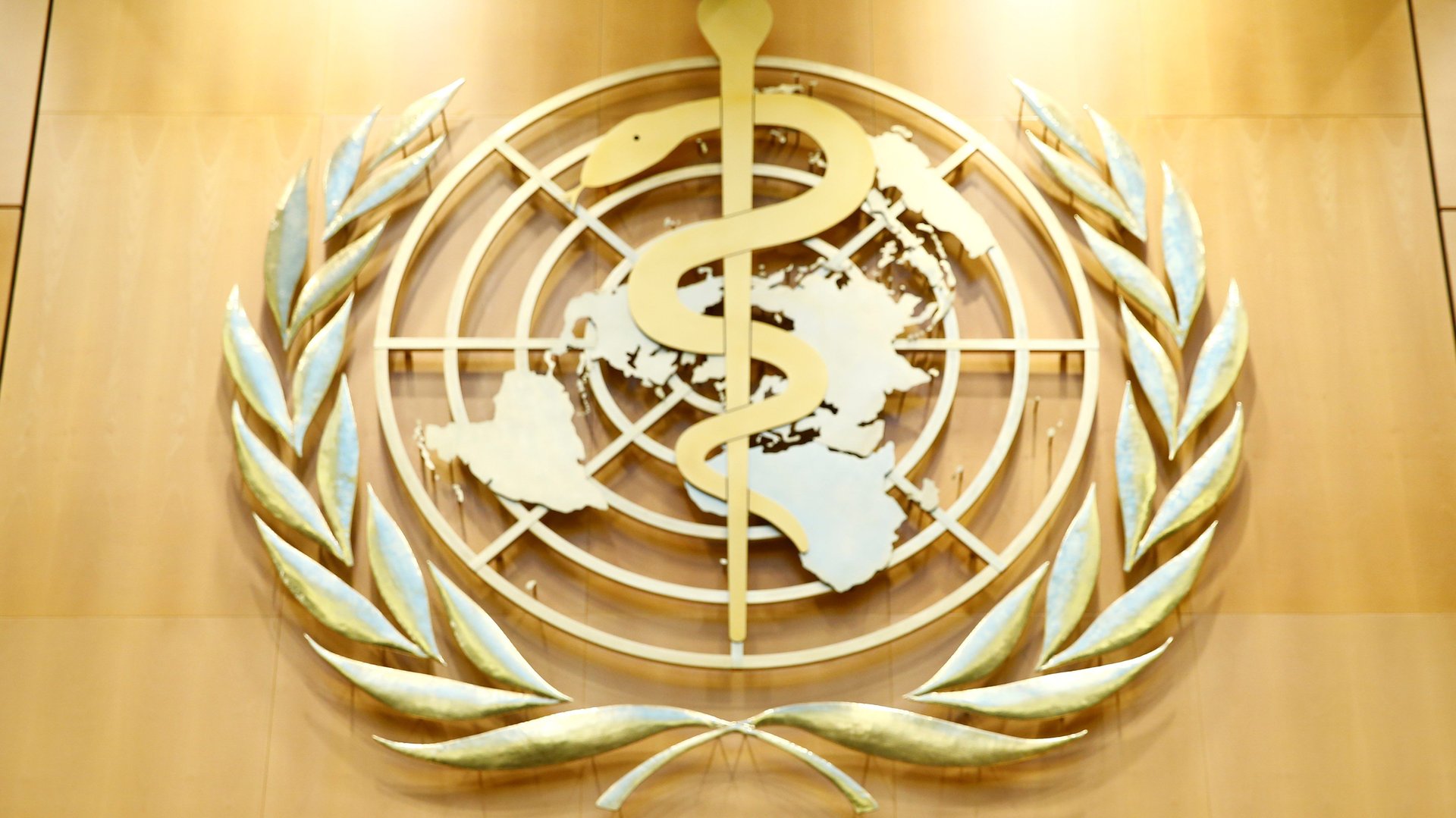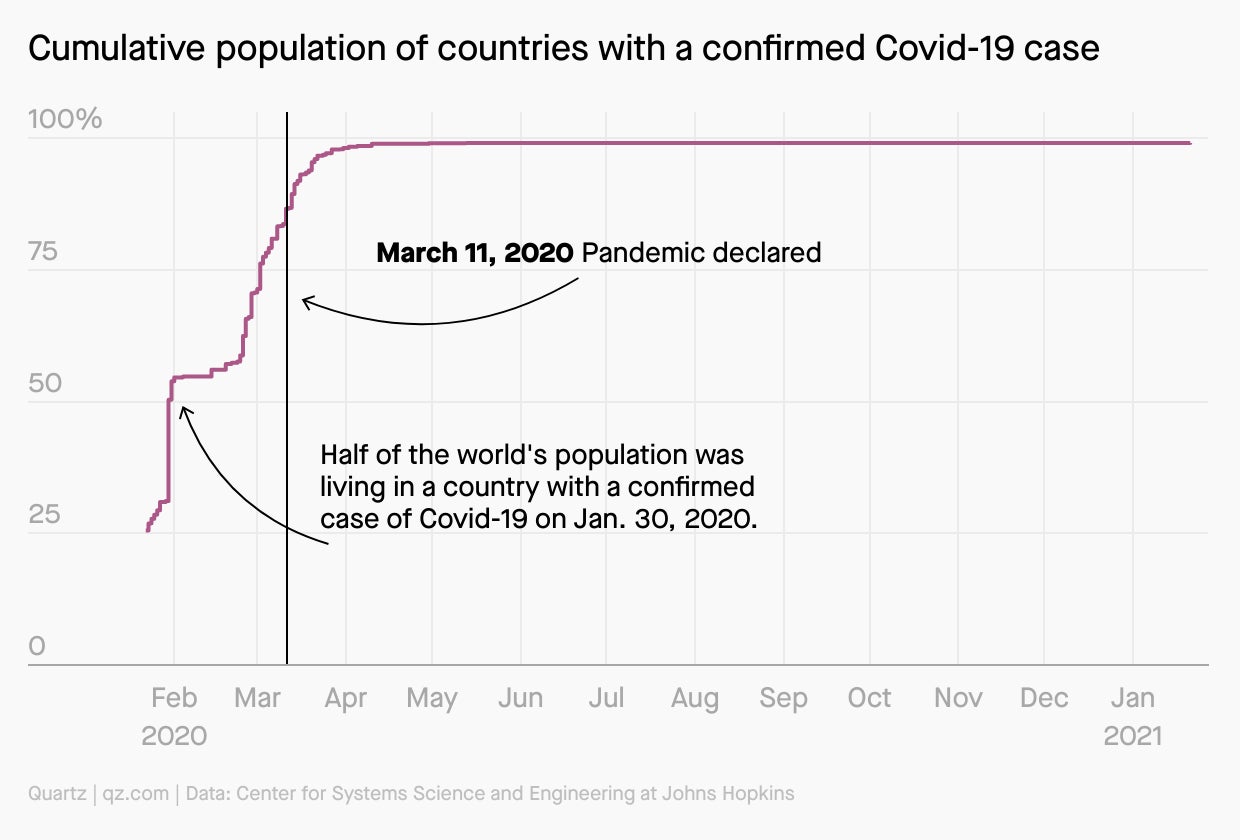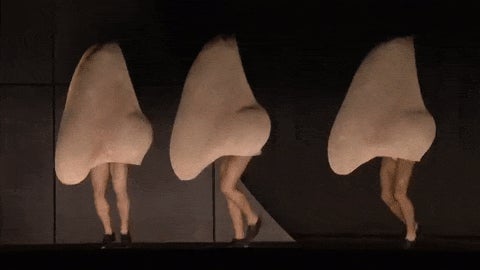Weekend edition—A lot longer than a year, royal HR lessons, scratch and sniff
Good morning Quartz readers!


Good morning Quartz readers!
For many in the US, this week marks the one-year anniversary of the pandemic. At this point in 2020, the World Health Organization (WHO) made an official pandemic declaration; the Centers for Disease Control and Prevention nixed gatherings of 50-plus people; the stock market plunged; Tom Hanks and Rita Wilson contracted Covid-19; the National Basketball Association suspended its season; Broadway shut down; and US president Donald Trump announced a 30-day ban on travel from Europe.
But by the time all that happened, the virus had already drastically changed east Asia. After the coronavirus was identified in China in December 2019, cases there climbed so quickly that the government built two temporary hospitals in Wuhan before the end of January. Soon Hong Kong, Singapore, Australia, and Taiwan had implemented travel bans or restrictions with China, and lockdowns for 50 million residents in 16 Chinese cities—during the Lunar New Year holidays, no less—left people turned away from hotels, unable to return home, or sealed in their apartments. The virus also quickly spread through large church gatherings in South Korea, prompting the suspension of in-person services in a country where religion is fundamental for millions of people.
In the US, many Asian Americans experienced a significant transformation of their daily lives well before March. Asian businesses saw sales and foot traffic fall, resulting in economic impacts that hit before the wider recession. And racist and inflammatory rhetoric—including from Trump—spurred a surge in bigotry that continues today.

The WHO declared a pandemic on March 11, 2020. But by Jan. 30, half of the world’s population was already living in a country with a confirmed Covid-19 case. By Feb. 9, there were 40,000 cases and at least 900 deaths, a fatality rate that exceeded the 2003 SARS epidemic. By Feb. 21, the WHO had confirmed more than 76,000 cases in 26 countries.
Anniversaries are an important way to reflect on what has been a truly historic period around the world—and to be fair, no particular policy debate seems to hinge on this one. But the US too often fails to recognize global problems until they appear at the doorstep of well-to-do white Americans, and today’s problems—from pandemics to climate change—are both exceedingly global and disproportionately harmful to marginalized communities. For that reason alone, it’s crucial to remember who Covid-19 hurt first. —Karen K. Ho
Five things from Quartz we especially liked
Thorny crowns. Being a part of the British royal family is a full-time job with no employee handbook. For Quartz at Work, Karen Ho illustrates what managers, human resources, and really anyone who has ever worked on any kind of team can learn from Meghan and Harry’s bombshell interview with Oprah Winfrey, starting with clear expectations, competent public relations, and mental health support. —Katherine Ellen Foley, science and health reporter
The rise of “buy now pay later.” While online shopping, I’ve often wondered about companies like Klarna, Afterpay, and Affirm—how do they work, and who uses them? Fortunately John Detrixhe is here to answer these questions and more, including: Will these companies encourage a new generation to borrow more than they can afford? —Alex Ossola, deputy membership editor
Are space companies headed to the moon? Maybe not, but a growing number are at least headed to the public market via SPACs, or special purpose acquisition companies, which are the trendiest way to raise money on Wall Street right now. Senior reporter and space expert Tim Fernholz shows how entrepreneurs are fueling their high-risk businesses with this red hot capital—a highly combustible combination. —John Detrixhe, future of finance reporter
Coming for the fashion. From Eddie Murphy’s covetable dad vest to the parade of dazzling frocks, Coming 2 America is worth watching if only for the fashion. In a winning feature for Quartz Africa, Nadia Neophytou spoke to South African knitwear genius Laduma Ngxokolo about the nuanced art of portraying the continent’s diverse heritage without lapsing into exotic clichés. —Anne Quito, design reporter
A jab of clarity. As more vaccinations against Covid-19 are distributed in several countries, there are real questions about what activities the shots can enable people to do safely. Katherine Foley provides a thoughtful, clear breakdown of the new guidelines from the CDC. They’re great for understanding when vaccinated people should still wear masks, maintain distance, stay outside, as well as continue to avoid crowds and international travel. —Global finance and economics reporter, Karen K. Ho
One membership thing that made us 🩺
What will it take to make telehealth a permanent part of medicine?
When people first started using telehealth, there were a number of barriers to adoption. Some were on the operational side, including the cost of services, issues with insurance reimbursement, and lack of connectivity. But others were more substantial—patients, as well as the medical community, worried about the level of care that could be administered remotely rather than in person. Though some of these issues have been temporarily resolved, those fixes need to be made permanent in order for telehealth to be a regular part of medical practice in the future.
✦ Quartz members can read more in our field guide on telehealth. We recommend trying it for a week, and seeing how you feel.
We’re obsessed with scratch and sniff

The power of common scents. Besides children’s books and perfume strips in magazines, scratch and sniff technology has stayed mainly on the margins. But its use underlies just how powerful scent can be, with a unique ability to form immediate emotional connections and reactions, triggering distinct moments from childhood and playing an influential role in the background of our everyday lives. The Quartz Weekly Obsession has a nose for these things.
Get the Weekly Obsession email sent to your inbox, for free!
Five things from elsewhere that made us smarter
Cows are the new oil. Six of the biggest US banks have announced plans to curb the climate impact of their investments, with a focus on cutting off funding for oil and gas drilling projects. Those same banks continue to plow money into another key source of greenhouse gas emissions: ranches and farms that are responsible for deforestation in the Amazon and other tropical forests. Activist shareholders have proven surprisingly effective at pressuring banks on fossil fuels—cattle and soy could be next. —Tim McDonnell, climate and energy reporter
The racism hidden in the US tax code. As Emory University law professor Dorothy Brown writes in a new book, Black Americans miss out on a lot of tax incentives on things like 401(k)s, mortgage interest payments, and investments, all of which contribute to white Americans’ wealth. For Bloomberg Businessweek, Ben Steverman explores Brown’s personal experiences with racism, the long road to gaining acceptance for her research, and why she’s hopeful that change may finally be coming. —Liz Webber, deputy email editor
Whence coronavirus? After more than a year, the question of how and where humans first became infected with Covid-19 has yet to be answered. It may never be: Its origin in China is obscured by geopolitical rivalry and racial animus. Still, Josh Rogin’s investigation into evidence that the virus emerged from a lab in Wuhan should ensure future warnings—like those issued by US diplomats in 2018—aren’t ignored, while elevating the importance of precautions in biological research. —Tim Fernholz, senior reporter
What are you looking at? The other night as I was crossing my street, a driver sped up to nearly hit me and yelled out that I had a nice ass. (I was wearing a parka, but that’s beside the point.) My first thought was that it had been a while since I’d been harassed on the street, and that this has been a pleasant side effect of quarantine. Marina Hyde captures the frequency, ordinariness, fury, and damage of such encounters in a column for the Guardian. “Why are they so angry?” she writes. “It does feel like way, way, way past time we found out.” —Katherine Bell, editor in chief
On the incredible loneliness of becoming a mother in a pandemic. In the Atlantic, Sophie Gilbert bares her soul in sharing her experience of giving birth to twins in 2020. Issues that can affect every new mother, from postpartum depression to intrusive thoughts, take on a special significance in her story as she navigates matrescence with a total lack of support—either from family and friends who couldn’t see her, or from a government that didn’t seem to care. Still, she managed to find some silver linings. —Annabelle Timsit, geopolitics reporter
Our best wishes for a relaxing but thought-filled weekend. Please send any news, comments, post-vaccine plans, and baby blankets to [email protected]. Get the most out of Quartz by downloading our app and becoming a member. Today’s Weekend Brief was brought to you by Karen Ho, Liz Webber, and Susan Howson.